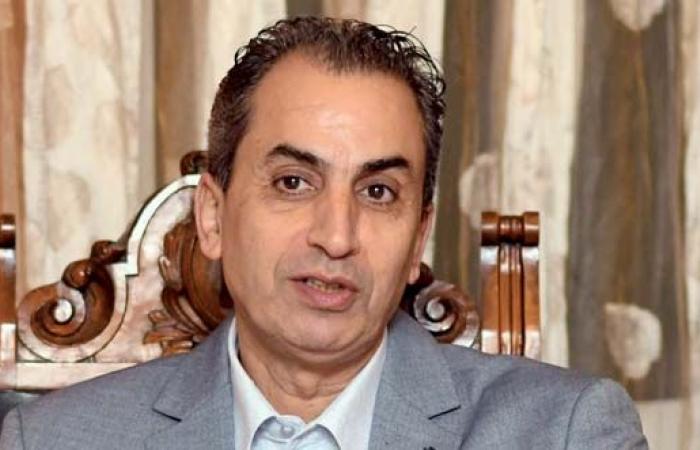
New strategic orientations of the State’s shareholder policy, reforms of public establishments and enterprises (EEP), appointment of new bosses at the head of five large public establishments… Abdelghani Youmni, gives us his insight on the State portfolio.
Challenge: The Minister of Economy and Finance presented on June 1st to the Sovereign the strategic orientations of the State’s shareholder policy. How will these guidelines which have just been adopted give visibility to the National Agency for the Strategic Management of State Participations and Monitoring the Performance of Public Establishments and Enterprises (ANGSPE) and accelerate business reform? public?
Abdelghani Youmni: Creation of the ANGSPE “National Agency Responsible for the Strategic Management of State Participations”. A public stock exchange “Management of the public productive portfolio”, similar to a private stock exchange: Embody the role of the State shareholder and contribute to economic development.
Read also | Industry: 66% of bosses consider having had “normal” access to financing in Q1-2024
Reforming public companies and taking total or partial control of industrial, financial flagships or logistical infrastructures is at the heart of the new paradigm of economic sovereignty of many rich and developed countries. In China, South Korea and Southeast Asia, this translates into state capitalism; in Western countries it is green protectionism and carbon adjustment mechanisms whose main purpose is to combat dumping from certain emerging countries.
Large companies where the State is the main shareholder can perform well and contribute to economic growth as well as job creation, provided that governance is perfectly efficient and effective. It is crucial to rigorously monitor financial, innovation, research and development, productivity, management and social responsibility indicators, as demonstrated by the example of the Office Chérifien des Phosphates (OCP).
Challenge: For the national economy, what concrete benefits are expected from the reform of public enterprises intended to consolidate and better manage the State portfolio?
OH: Public operators can exert significant externalities on national economies. Indeed, the theorem formulated by economist Ronald Coase offers a theoretical perspective on the management of externalities, highlighting how they can become positive through a rigorous analysis of the cost/benefit relationship. Thus, when property rights are well defined and transaction costs are low, the public sector can truly boost the private sector.
The objective of consolidating and better managing the State portfolio is to build the foundations of permanent and productive support for vital sectors, including energy, health, water, food security, environment, connectivity and mobility.
This State shareholder policy is structured around seven Strategic Orientations: 1/Make public establishments and enterprises the strategic lever for the consolidation of national sovereignty; 2/EEP must become the driving force for continental and international integration; 3/State shareholder policy must energize the private sector; 4/EEP, the main catalysts for a competitive economy, sharing of added value and promotion of employment; 5/EPP facilitators to achieve territorial equity in the service of economic and social, financial and digital inclusion; 6/EEP resource managers in perfect harmony with the 17 SDGs; 7/Strengthen the exemplary role of public establishments and enterprises in terms of governance and performance.
Challenge: The Sovereign also appointed during this Council of Ministers, five new bosses at the head of five large public establishments: Masen, ADM, ONEE, ANP and ONDA. How do you read these changes in relation to the reform of public companies?
OH: Morocco’s activism at the highest level of the state constitutes an avant-garde response to major global and national transitions. Geopolitical, geoeconomic, health and environmental crises pose major challenges to all states, including Morocco. It is therefore legitimate to question the adequacy of the Moroccan state’s shareholder policy to deal with it.
Morocco has a public portfolio of 272 public establishments and enterprises (EEP), generating 305 billion dirhams in turnover in 2023, or more than 23.4% of GDP. The reform of these EEPs is crucial to move to a development model driven by external demand and achieve a growth potential of 6% by 2035.
Read also | Hind El Youssi Tazi: No form without substance
Another limitation to overcome is to achieve a perfect correlation between the seven strategies of the EEP reform and the seven recommendations of the New Development Model. This specific dimension underlines the need to carry out an organizational restructuring, a legal transformation of the EEPs and their empowerment.
The Sovereign’s decision to appoint five new leaders to manage five strategic companies in terms of sovereignty and economic take-off of the kingdom is not a surprise. This strategy aims to align common interests to improve public finances, public policies and the private economy, in order to achieve the imperative of sustainable and quality growth.
Challenge: These five institutions operate in three important sectors, including energy, transportation and infrastructure. Are we moving towards resizing operations for these establishments which operate in sectors deemed to be priorities?
OH: The energy, transport and infrastructure sectors are both levers of weak sustainability and strong sustainability, interchangeability between economy and ecology but also a perfect connection between production, productivity and employment.
Resizing is surely the act of the next day, it does not mean privatizations but innovations in financing and profitability. To better understand this complex process, let us remember that MASEN is the weapon of the energy transition, renewable energies and green hydrogen (boosting renewables and green energy from 9-10% today to 52% in 2030 ).
ONEE should work to reduce the oil and coal electricity production bill and absorb the ONEE debt which amounts to 7 billion dirhams, the energy mix is made up of 56.7% oil, 30% coal and 3.9% gas with renewable energies contributing 9.7% (biomass: 5.9%, wind and solar: 3.4%).
With ONDA, Morocco would like to become the main air hub between Africa, Europe and the Americas. Finally, ADM is the heart of road infrastructure.
Challenge: The EEP reform consists of transforming public companies into public limited companies to facilitate their partnership with the private sector. Does this mean that the State would seek to disengage from many public establishments and companies?
OH: The most significant element of the transformation of public companies is to gradually increase their financial autonomy and that of managers. It is not a question of liquidating the public sector, because we must not confuse public service and actors of the public economy. It is also not a question of planned obsolescence of the State shareholder, it is quite the opposite.
In other words, the partial devolution of economic power to the limited company to facilitate the public-private partnership is a very effective weapon for achieving debureaucratization and the institutionalization of joint stock companies and performance companies within the framework of the PPP.
At present, the current strategy of the Moroccan State which, apart from any political or ideological ambiguity, does not seem to indicate a generalized disengagement of public establishments and enterprises (EEP) neither for budgetary reasons nor for profit ambitions, only sovereignty and consolidation guide its future choices.
On the contrary, it aims to strengthen and optimize their role in the national economy. The keys to this roadmap are to reform and modernize, align with the NMD, appoint loyal, strategic and competent leaders, focus on vital sectors, and put the EEP at the service of growth, employment and pragmatic sustainability.





